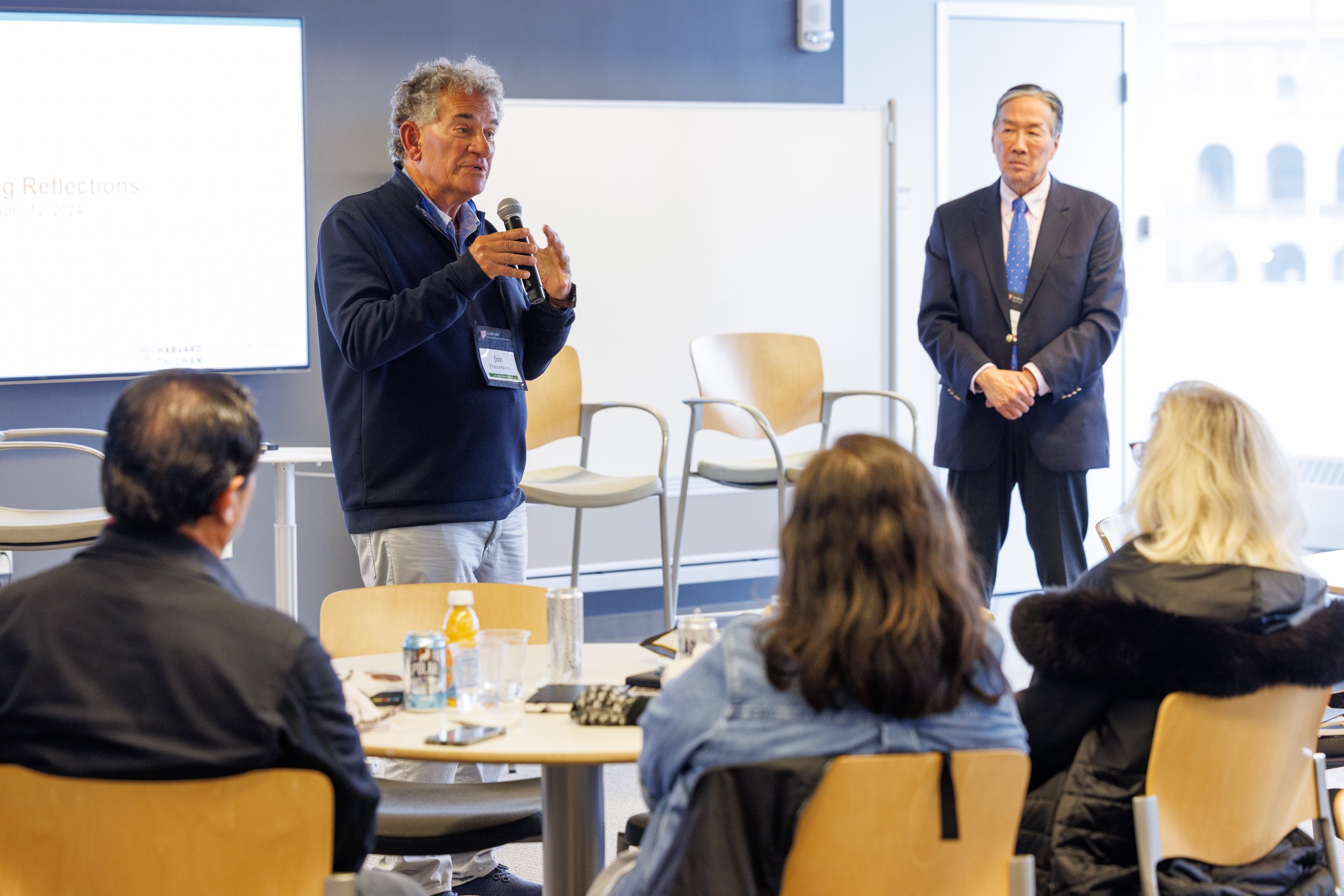Eliminating Unsheltered Homelessness in Portland, Oregon
Jim Francesconi, ALI 2022
former city commissioner and health care executive building a team to eliminate homelessness in his hometown of Portland.
Photo Credit: Russ Campbell Photography; Story by: Clea Simon
Jim Francesconi knew that growing unsheltered homelessness was a systemic government and community failure. Before becoming a 2022 ALI Fellow, the former city commissioner and health care executive understood that resolving the issue would require complex, integrated solutions. Jim witnessed Portland’s unsheltered homeless population top 11,000. (Boston has 500). At Harvard, Jim learned how to identify primary causes and integrate solutions – and how to assemble community stakeholders to work with government to tackle them.
Jim’s background included government, healthcare, education (the Oregon State Board of Higher Education), and nonprofits (founder of Portland’s Schools Uniting Neighborhoods for low-income children). Jim came to ALI because he believed that homelessness was threatening Portland’s reputation for compassion, livability, and progressive values. This drew him to the Advanced Leadership Initiative to learn to be a catalyst to preserve and protect Portland and its most vulnerable.
At ALI, he met with – and learned from – Dr. Howard Koh at the T.H. Chan School of Public Health and Dr Jim O’Connell, the founder of Boston Health Care for the Homeless, to understand the mental health and addiction issues causing homeless and the need to link housing and shelters with services. He learned from Professor Jennifer Molinsky at Harvard’s Joint Center for Housing about building affordable communities with housing and shelters. “The professors were tremendous. I learned so much because I had so much to learn. I came at it from the governance side, not as a homelessness expert.”
As Francesconi came to understand, homelessness is caused by multiple factors. “Dysfunctional systems are the root causes of homelessness,” he said. The first is obvious: “the housing and shelter system, in the long run is the most important one,” he said, noting the lack of affordable housing in his city. “But the mental health and addiction systems are not connected to the housing systems. The third, which is a problem in Portland, is governance. Some issues are city issues, some are county issues, and some are state issues.” All of which, Francesconi explains, must be addressed simultaneously.
It was the Harvard Kennedy School’s Dr. Francis “Frank” Hartman who pushed Jim to think more deeply about how to help government do its job by demanding integrated solutions It was Frank who suggested that Jim create a “kitchen cabinet” of community stakeholders who would meet weekly with local government leaders to devise an integrated delivery system that combined housing and shelters, with health care, and governance reforms. Frank reinforced Jim’s belief that “the challenge with homelessness, not just in Portland but across the country, is to integrate three dysfunctional systems. You need power for good”. “And that means building a coalition of government, nonprofits, key business leaders, and labor, especially public sector unions.”
Jim’s first step in building the kitchen cabinet was to bring key community leaders to Harvard. In March, 2023, Jim brought the mayor’s and county chair’s staff made up of business, labor, philanthropic, health care and community leaders to Harvard. The kitchen cabinet met with Dr. Howard Koh, Profs. Meredith Rosenthal, Jennifer Molinksy, Frank Hartman, and Mayor Bill DeBlasio.
Francesconi and The “Kitchen Cabinet” (Portland’s key community leaders) visit Harvard Square, March 2023
Once back home, the “KCab” met individually with Portland’s mayor, Multnomah County chair and Oregon’s governor to help create and execute a strategic plan to end unsheltered homelessness. The city and county would be free to accept, reject or change any recommendations. This resulted in the Portland City and Multnomah County Plan to end unsheltered homelessness.
In June 2024, Multnomah County and the City of Portland officially adopted their Homelessness Response Action Plan. The plan’s mission is to house or shelter and to provide services to 11,000 Multnomah County residents who are currently living on the streets, parks or sidewalks with a specific goal of eliminating half the unsheltered by December 2025.
With a plan in place, Portland and Multnomah County are now implementing a multi-pronged approach. About 2,900 unsheltered homeless are already off Portland streets and living in housing and shelters, many of whom are receiving health care and addiction services. The implementation results to date can be found here.
“Building a coalition of business, labor, and community leaders to help our government leaders was the most important strategy”, Jim said. “I loved being an elected Portland City Commissioner. But my most satisfying work has been working behind the scenes to put younger, more talented, more diverse leaders in places where they can help local government leaders lessen human suffering and solve a critical urban issue. I am so grateful to ALI and Harvard who helped and are continuing to help Portland and our most vulnerable.”


